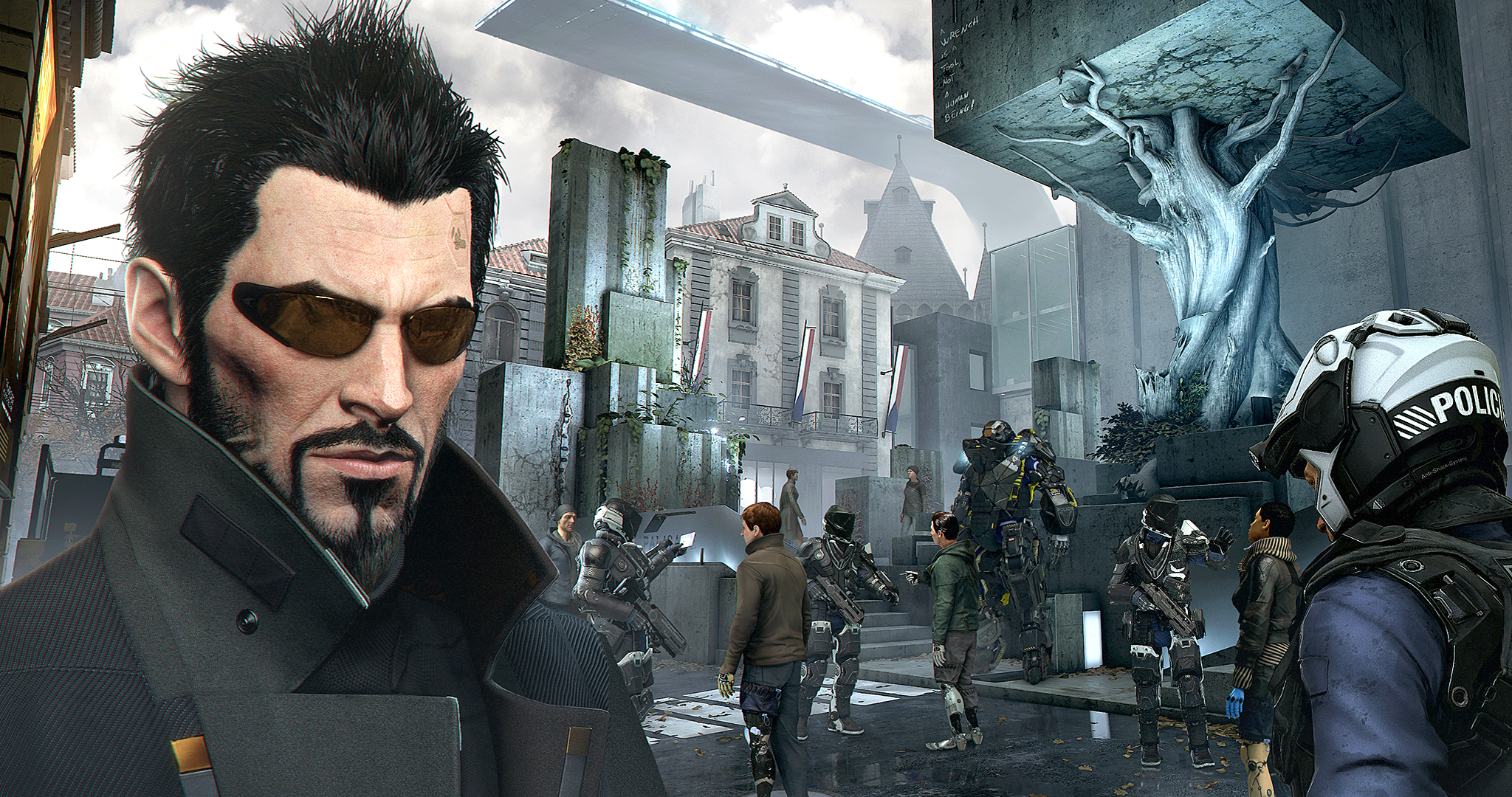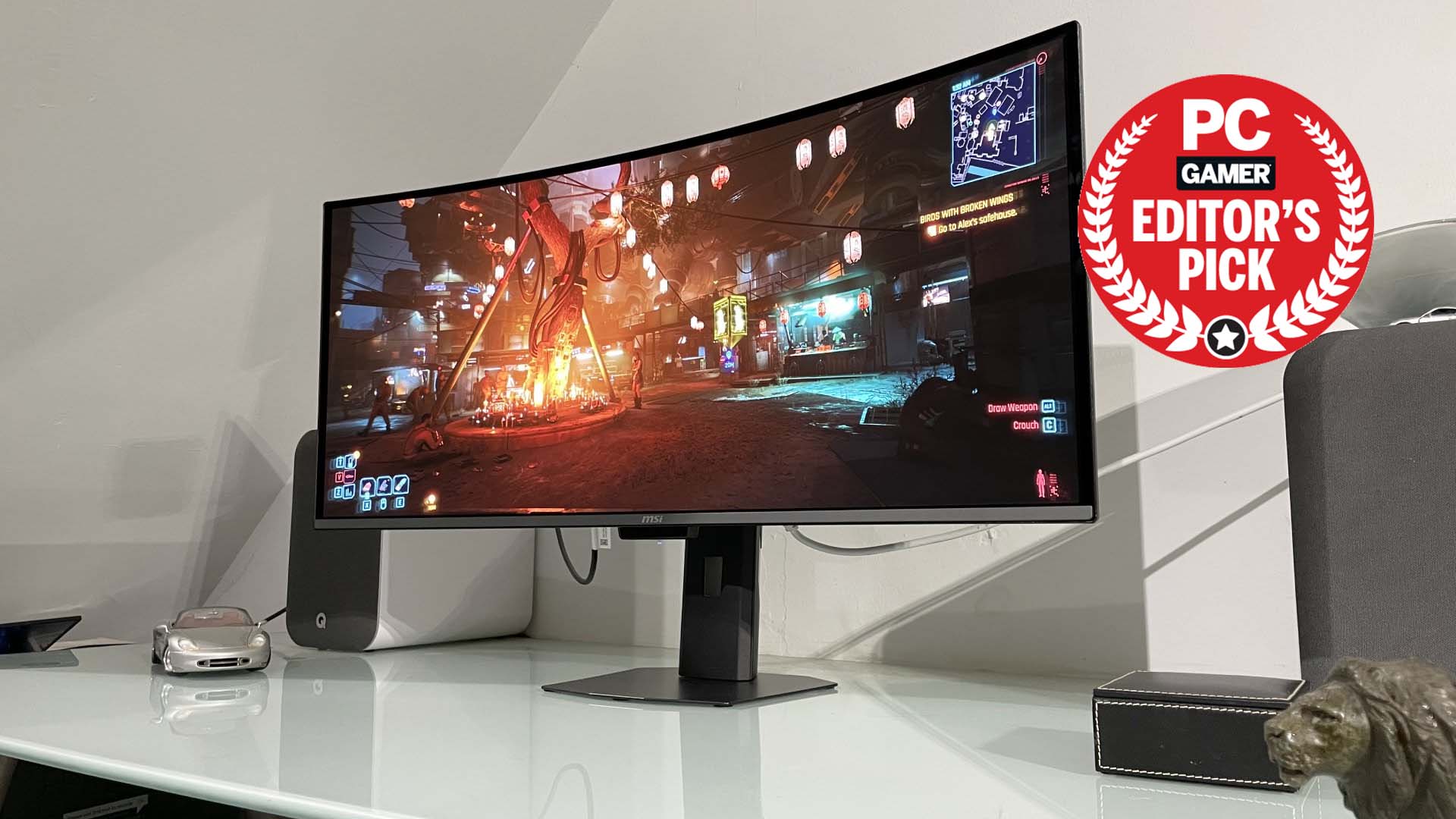Deus Ex writer: each ending in Human Revolution was the 'correct' ending


Mary DeMarle is the lead writer on Deus Ex: Mankind Divided. She also worked on Deus Ex: Human Revolution as well as Homeworld 2 and more.
At PAX Australia I had the opportunity to talk with Mary DeMarle, lead writer on Deus Ex: Mankind Divided. DeMarle also wrote Human Revolution, and had some interesting insights into how Mankind Divided will expand on the oppressive, dystopian Deus Ex vision. She also discussed how the studio is dealing with the last game's awkward, branching ending.
Warning: there are huge spoilers for Human Revolution in this interview.
The cities in Human Revolution – Detroit, Hengsha – are pretty typical sci-fi settings. What’s the motive for setting part of Mankind Divided in Prague?
There’s a couple of reasons. When we started working on the game we were aware of the fact that, okay, Human Revolution was basically North America and Asia, and we’re really missing Europe. We thought we had to have a European country in this one. That was one of the reasons, and there were a lot of things in terms of the Czech Republic that were enticing to us. Some of it was history, although we have departed from it quite a bit for the future. Knowing about the velvet revolution [was part of it], but there’s also the Golem myth there, which is a very important segment of the country’s history. We were looking at the idea of the segregation of the augmented people, so the myth of the golem of Prague fit in there thematically.
Will the hub city layout carry over from Human Revolution?
On a production level, we still speak about things in terms of hubs and compounds, so there is a bit of that – you’ll be into a city hub and then you’ll go to a different location. But one of the things we also wanted to do was put compounds more into the city hubs themselves, so that it’s a mix of both. So, yes, we’ll still have some of that, and hopefully we’ve pushed it a bit further.
There was a huge morally ambiguous decision at the end of Human Revolution, with several different outcomes that dramatically affected the story's close. Where does Mankind Divided pick up? Which of those endings is ‘true’?
Keep up to date with the most important stories and the best deals, as picked by the PC Gamer team.
A lot of people ask which ending we settled on to grow from, and the answer I give is “which one did you choose?” Everyone chose their ending and it was a big decision. We had people write to us and say they had half hour discussions with their partner about what they were going to do. We don’t want to rob that from anybody. We realised that there are three people in the world who know what decision was made: Adam Jensen, Eliza, and you, the player.
So you guys know, but the rest of the world [in the Deus Ex universe] only knows that the “aug incident” caused millions of augmented people to go crazy all over the world. When you’re swept up in tragedy your focus is only on that. It’s only in the aftermath of [the tragedy], when you’re finally able to step away, that you’re able to hear the noise. By the time that happens, the message has gotten out but by the time anyone is ready to hear it, there are a lot of competing messages. People will, in the face of tragedy, try to make sense on their own, so there are plenty of messages, plenty of false reports and rumours.
So in that way all the endings are true and none of them are true.
Exactly. The thing that is true, that everyone knows, is that millions of augs went crazy and hundreds of millions of people died, and the Panchaea installation got so damaged that it collapsed and people died in it, and then there are rumours.
What are your feelings regarding transhumanism?
I get this question a lot and every time it changes slightly. In general I would say where technology is leading mankind, and where we’re able to experiment, there’s great potential. It’s great what can happen. There are people whose lives have been changed. People who are born unable to hear suddenly can. I remember listening to a woman who was born without legs speak, and she’s a great athlete and model now, and she gets to change her height because she has artificial legs. There’s a part of me that embraces all that and there’s a part of me that is a bit of a technophobe. I hate it when my computer doesn’t work and I don’t want to deal with it. Would I go and cut off my arm and get a new one? Probably not, because I already have a hard time making a doctor’s appointment!
Is it difficult to deal in themes as weighty and morally ambiguous as Deus Ex in a video game?
I’ve never thought about that, but it’s always difficult to tackle it in any medium. In games it might be difficult in terms of the fact that when you’re dealing with weighty, heavy issues you really need to have… we don’t like to deal in black and white. We like to have the shades of grey. But people have a tendency to latch onto something simple, and when you’re working with a game you’re working in a team. So there’s a challenge in the fact it’s not a single creator, it’s a bunch of people bringing that vision together. And then I think there’s the challenge that the audience. Why do you play a game? Sometimes you want an escape, something simple, but at other times you want to explore something deeper.
Augmentations weren’t unanimously frowned upon in Human Revolution, but from what I’ve read about Mankind Divided, they kinda are. How has that affected the tone and aesthetic of the game?
We’re definitely going for a much darker vision. Not everyone is against the augments, and there are many people still on the fringes. Adam Jensen isn’t the only one who didn’t ask for it. There’s various people out there who needed these things to stay alive. There are a lot of people who still believe in the potential of augs, as David Serif has always believed. What their struggle in this one is, ‘hey guys, remember we were victims’. We’ve definitely gone, as I’ve said, for a darker tone. It’s a much more somber game. We’re starting to move a little bit away [from the HR aesthetic], into blue-ish tones, like the original, as we head into that era.
You guys used the phrase ‘mechanical apartheid’ in your marketing, and that caused some controversy. What is your personal response to that, as a writer?
We know that it is a charged word, we definitely know that. Yet it’s so perfectly suited to what we’re doing, that the use of it was appropriate in that context. I certainly understand why people would be upset and offended, and yet at the same time if we’re not able to explore these complex issues then what are we able to do? Not every story is rosy, not every story is black and white, and one of the things about science fiction is that we’re trying to show a mirror to the world. We need to be able to examine these things or else we’ll never be able to grow and change. That’s my philosophy, but having said that I never want to offend anyone who has lived through those struggles, and the most I can hope for is that if I approach it with sensitivity then hopefully something better will come of it.
You told GamesRadar that there won’t be a multiple choice ending in Mankind Divided. Why?
For Human Revolution we actually didn’t want [the ending to be dictated by] a press of a button, [but we had to] for production reasons and timeline and schedule. We actually wanted to have the player do things, and we believed that if you really believed in your ending you’d have to work for it. Really what we wanted to do from the get go was, “can we really push the narrative in ways where choices you make early on can impact later”? Now we’re embracing the idea of choice and consequence.
So it’ll be influenced by the whole playthrough and not a choice at the end.
Yes.

Shaun Prescott is the Australian editor of PC Gamer. With over ten years experience covering the games industry, his work has appeared on GamesRadar+, TechRadar, The Guardian, PLAY Magazine, the Sydney Morning Herald, and more. Specific interests include indie games, obscure Metroidvanias, speedrunning, experimental games and FPSs. He thinks Lulu by Metallica and Lou Reed is an all-time classic that will receive its due critical reappraisal one day.

